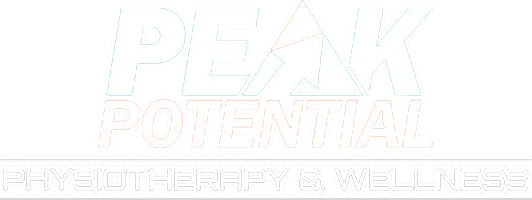There was a time – not so long ago – that doctors recommended bed rest for patients with low back pain. We now know that may be the worst thing you can do for your back in the long run. If you follow current research you know it’s important to continue exercising with back pain.
Numerous studies have found that activities such as yoga, walking, or strength training can reduce back pain and disability dramatically. On the other hand, if it hurts to move, you could be afraid to even bend over to lace up your gym shoes.
Clients often tell us they feel trapped. They know that becoming stronger and more flexible will eventually provide relief, but it’s difficult to begin the healing process. Additionally, there is fear that they will cause further injury or another flare up when exercising with back pain.
The good news – you can learn how to shape up without aggravating your aching back. Yes, this is even true if you an MRI has shown a “bulging disc” or a doctor has diagnosed you with “degenerative disc disease”. You may be surprised at all the safe activities you can choose from and the modifications you can make to achieve your goals without pain.
As experts on back mobility and injury recovery we have 8 rules you need to following when exercising with back pain.
- Strengthen Your Core
When you’re ready to work out, it’s essential to firm up your abdominals and other muscles in your torso that support your low back and stabilize your entire body. You’ll enhance your posture and lessen the strain on your back muscles and spine. - Target Your Back
When you are at a point that your back is less severe, you can begin exercises that will strengthen your back. Training for flexibility and strength will speed up your recovery and prevent a back injury from reoccurring. - Stretch Your Hips
Tightness in your hips often contributes to low back pain and can be a sign of pinched nerves. To open up that area and relieve the pressure, try gentle low lunges or rock back and forth while sitting on a foam roller. You can do this as part of your warm up routine. - Improve Circulation
Blocked arteries or poor blood flow can cause discomfort in your lower back. To improve circulation to your healing back muscles, add cardiovascular training to your strengthening routine. A short brisk walk or 20 minutes on the elliptical machine will increase blood flow to prime your body for the strengthening exercises that will follow. - Go Low Impact
Perhaps your exercise routine has always been a high impact aerobics class or running on the treadmill. In this case, you may want to consider going low impact for awhile to allow your body to fully heal before returning to these activities. Low impact exercise includes walking, Pilates, strength training, and cycling. You don’t have to pound the pavement to see results from exercise. - Stay Hydrated
A dehydrated body is much more prone to injury. Fluids help cushion our joints and allow our muscles to move with ease. Stay hydrated, not only during a workout but through the day to prevent pain. - Talk with Your Physical Therapist
Back pain comes in many different forms, from a pulled muscle to a sprained ligament to sciatica. A physical therapist that specializes in low back pain can help you identify the root cause of your back pain and advise you on whether you on the right amount of rest and the appropriate exercise. - Change Your Mindset
Changing your mindset makes any recovery process easier, especially if you’ve been sedentary up until now. We can’t think of exercise as an all or nothing thing. Distinguish between moderate exertion and overdoing it. It’s best to get moving (your body isn’t a fragile as it might feel) as long as you feel no acute strain.
If you feel stuck in the rut of back pain, please know that you can lead an active life without increasing your back pain. How can we be so sure exercising with back pain is a good idea? We see it EVERY SINGLE DAY in our clinic.
In fact, strong muscles and good posture will lessen your symptoms and reduce future flare-ups. With regular exercise, you’ll be able to manage your condition and resume doing the things you love.
The good news is that you don’t have to go it alone. A back pain specialist can help you naturally reduce your pain to allow you to move more. We then help you stretch and strengthen the right muscles to keep you going strong for years to come.
The first step to working out without back pain is reaching out to one of our back experts. We can help you decide if you are ready to jump in on your own or if you would benefit from some expert guidance to reach your goals without further injury. Click HERE to schedule a Free Call with a Doctor of Physical Therapy or schedule your initial evaluation.


